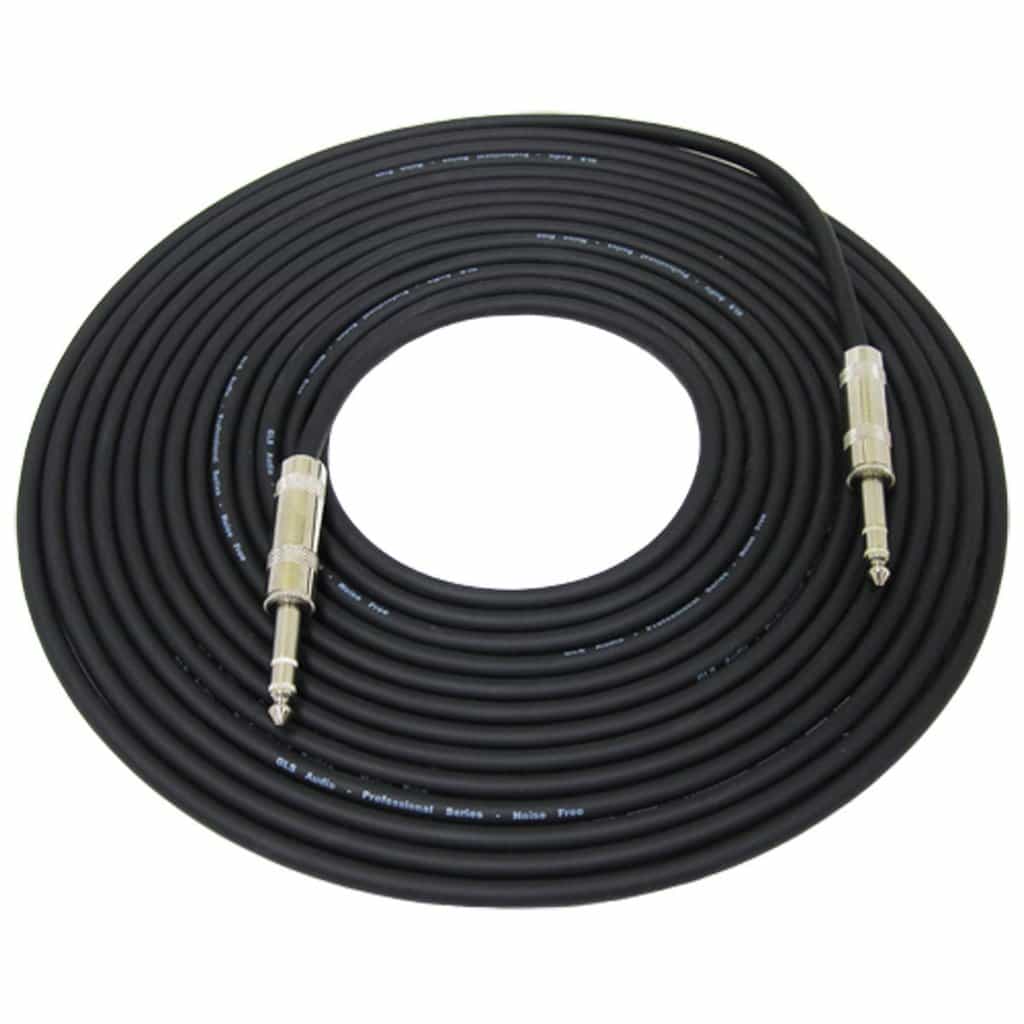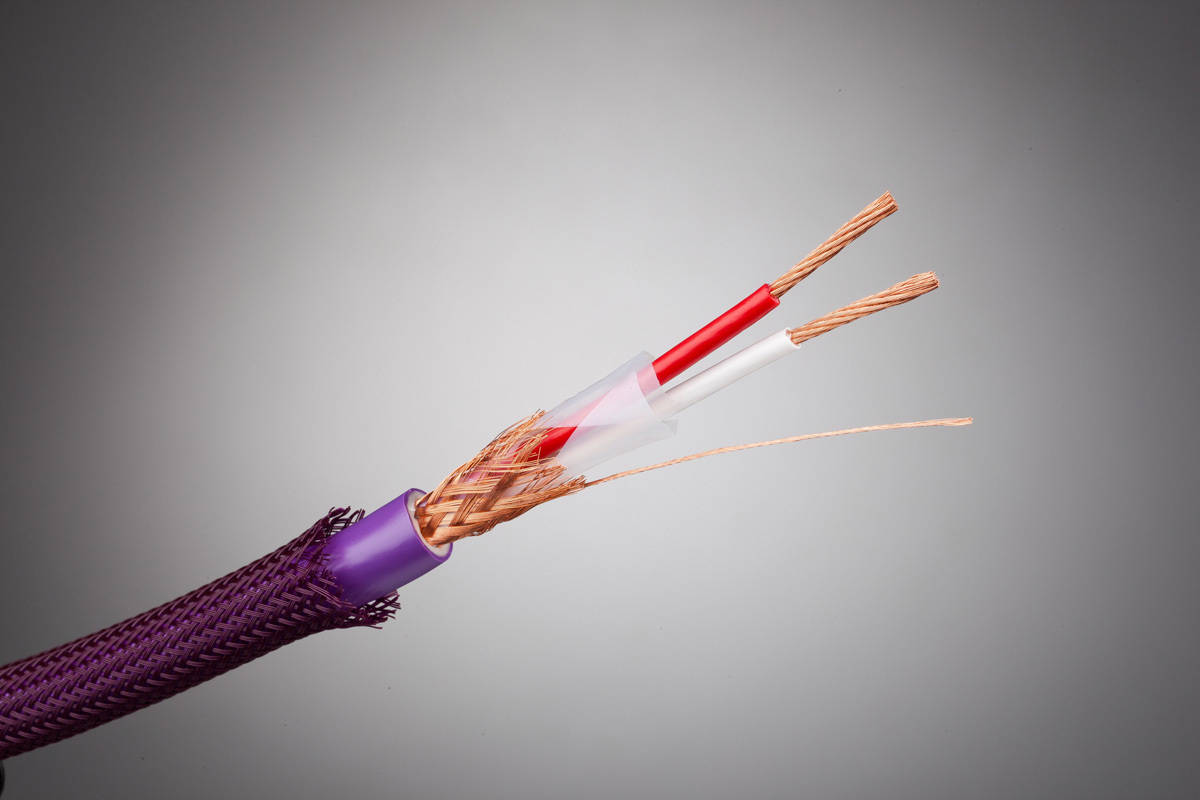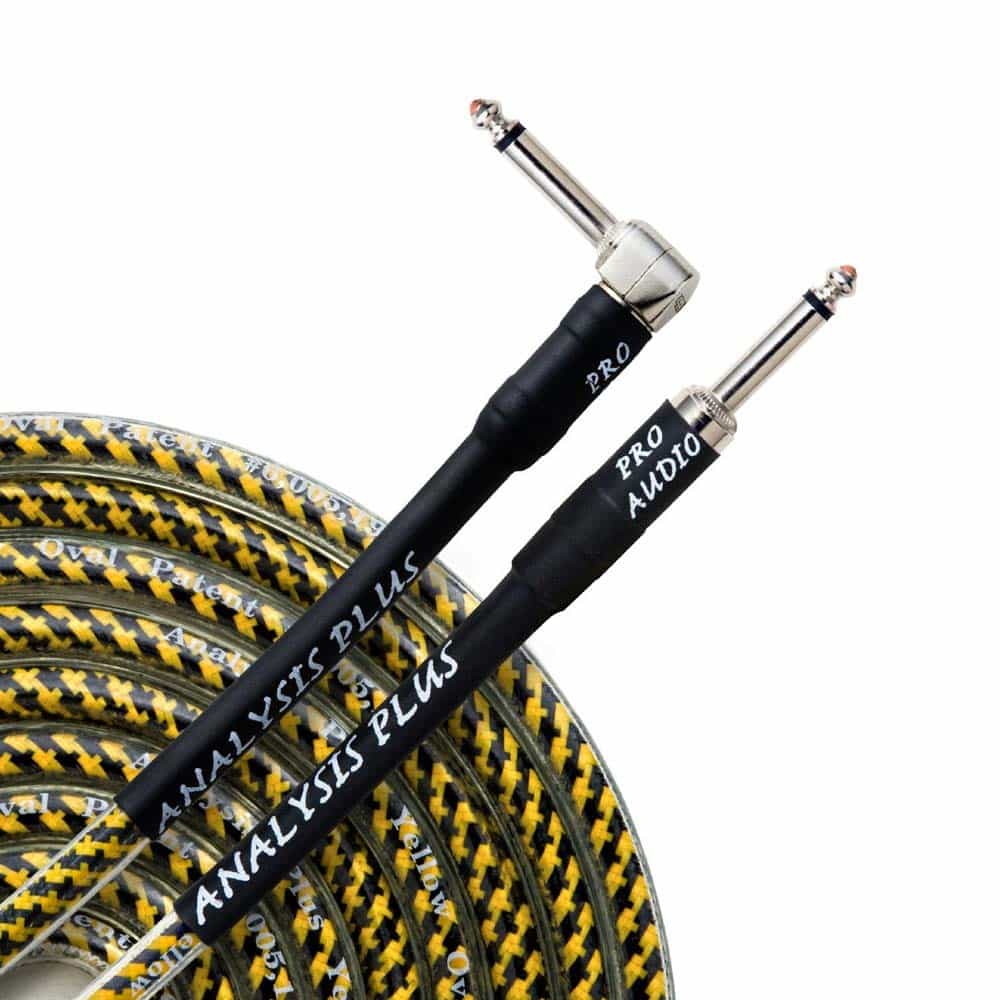They may seem like a fairly insignificant part of your setup, a necessary but boring expense for your rig. You may think that all cables are the same, so why should you spend more money on the expensive black cable as opposed to the cheap…also black cable?
One end goes into my guitar, the other in my amp, sound comes out that’s all there is to it.
Well, as it turns out, there is much more to cables than what meets the eye! Having good quality guitar cables can make quite an impact and difference to your tone, not to mention good cables will last much longer and save you having to replace them after each gig.
Here are some of the key factors that make the differences between a good quality guitar cable, and a cheap cable.
Capacitance is how a cable responds to voltage changes, which is measured in picofarads per meter (or per foot). Passive pickups are hi-impedance sources, which means that a low capacitance cable will allow you a better, fuller frequency response.
A cable with high capacitance will essentially act as a low pass filter for your signal, cutting off your guitars high end, and dampening your sound. Because capacitance is measured by the length of cable, it is recommended to use the shortest length needed to keep capacitance at a minimum, and keep your tone as clean and true as possible.
However, if your guitar or bass is fitted with active pickups, they output low-impedance, meaning the capacitance of a cable will make far less of a difference than your conventional passive pickups.
A cables shielding is also important to keep any unwanted noise to a minimum. If you have ever plugged your guitar into your amp and picked up a radio station, that is the result of poor shielding in the cable.
Good quality instrument cables tend to use a braided copper, or a type of conductive jacket to eliminate any electrical noise/interference, once again keeping your guitar signal clean!
Connectors on the ends of your guitar cables are important not because they change anything to do with the sound of your instrument, but because of the wear and tear that they will have to endure.
There is really no sonic difference between connectors weather they be nickel plated, or gold plated. The difference is in how they will hold up over time. The reason that gold plated connectors are preferred is because gold is more resistant to corrosion that nickel.
However, if you are gigging frequently and are plugging in multiple times a day gold may not be best choice for you. This is because gold is a softer material meaning that it is likely to wear down quicker than your standard nickel plated connector.
Connectors are important, but they are more dependant on how much you will be playing!
Next time you have to buy a guitar cable remember what you need to look for. Keep in mind the length you are buying, what type of pickups you have in your instrument, how often you will be playing. Listen for yourself and hear the difference that good quality instrument cables can have on your tone!
Meet Jack, a Wi-Fi Device That Replaces Your Guitar Cable Video | Guitar World
Meet Jack, a Wi-Fi Device That Replaces Your Guitar Cable Video | Guitar World Guitar people, meet Jack!
Jack is a Wi-Fi device that replaces your guitar’s cable with a “studio-quality 24-bit connection,” according to its creator, John Crawford.
Unlike existing wireless devices, Jack doesn’t use Bluetooth or radio technology, which can be slow and might even cause a loss in fidelity. Crawford’s technology can be used with any musical instrument or microphone to make it a Wi-Fi device.
Buying Guide: How to Choose the Right Audio Cables | The HUB
Buying Guide: How to Choose the Right Audio Cables | The HUB How to choose the right connectors and cables to match your gear and budget
While cables may not be the sexiest part of your setup, understanding how they work and what to look for when shopping will eliminate hassles and ensure you get the best possible sound. This guide will get you up to speed on all the in and outs of audio cabling to help you choose the correct cables for your purpose.




